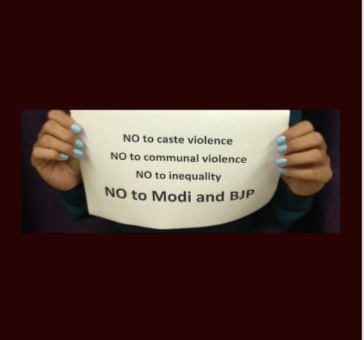– Ayesha Sultana
When Narendra Modi aimed for a resounding victory of 400+ out of 543 seats for his alliance, few dismissed the ambition. After all, the Indian Prime Minister and his BJP have been a dominant force since coming to power a decade ago. However, as the results come in, while Mr. Modi and his alliance are on course to secure a majority, it is not the overwhelming triumph they had envisioned.
Religion as a Campaign Strategy
Religion played a significant role in this election, as it does in every Indian election. Mr. Modi’s inauguration of a Hindu temple at a contentious site in January was expected to boost his party’s performance. However, the BJP’s campaign turned out to be more polarizing than anticipated, with some of the most aggressive rhetoric coming from the top.
In an April campaign rally, Mr. Modi remarked, “When their (the opposition Congress) government was in power they had said Muslims have the first right on the nation’s wealth. This means they’ll collect the wealth and give it to whom? To those who have many children. To infiltrators.” This comment was seen by many as an attempt to rally conservative Hindu support.
Yet, in key constituencies, such as the temple city of Ayodhya, the BJP candidate lost, raising questions about the effectiveness of using the “Hindu card” as a campaign tool. Instead, it seems to have galvanized Muslim minorities and other opposition supporters against the BJP.
The Decline of ‘Brand Modi’
Narendra Modi’s enduring popularity has been attributed to his branding acumen, transforming routine events into spectacles and using emotionally resonant messaging. His portrayal as a cultural icon has cemented his status as a formidable leader in Indian politics. A weak opposition and largely supportive media further bolstered his image.
However, this election shows signs that “Brand Modi” is beginning to fray. For the first time, Modi has not achieved an outright majority, suggesting that the aura of invincibility is diminishing. The results indicate that even Modi is not immune to anti-incumbency sentiments. This may lead to the downfall of Modi’s authoritarian style of leadership as he is compelled to navigate coalition politics.
Opposition Gains Momentum
Since the formation of the opposition INDIA bloc in July 2023, the Modi-led government has dismissed it as a coalition of self-serving leaders. However, the Congress-led opposition emphasized rural distress, inflation, and unemployment, resonating with voters. A 4,200-mile march by Rahul Gandhi invigorated supporters and party cadres, and the opposition’s enhanced social media strategy challenged the BJP’s dominance.
Strategic vote transfers between alliance partners played a crucial role in the opposition’s gains. The BJP continues to struggle in southern India, with significant losses in Karnataka and limited gains in Telangana and Andhra Pradesh. In Tamil Nadu and Kerala, regional and opposition parties have thwarted the BJP’s attempts to make inroads. The development-focused welfare schemes of non-BJP parties seem to have resonated more with southern voters.
Implications for Modi’s Leadership
Modi’s leadership on the global stage has been bolstered by his strong domestic support. However, leading a coalition government will require him to be more consultative, slowing down his decision-making process. India’s policy of strategic autonomy in foreign affairs is likely to continue, but Modi’s ability to make swift decisions without consulting allies will diminish.
Narendra Modi, accustomed to running a centralized government, will now need to adapt to coalition politics. He must be more mindful of coalition partners’ concerns and sensitivities, a challenge noted by analysts. Coalition governments in India have historically been prone to instability, posing a test for Modi and the BJP.
Conclusion
The election results mark a significant shift in Indian politics. While Modi’s BJP remains a powerful force, the rise of the Opposition and the need for coalition governance signal a new phase in India’s democratic journey. The strategic vote transfers between Opposition alliance members have proven effective, highlighting the wisdom of the voters in advocating for a more balanced and representative government. This may lead to the downfall of Modi’s authoritarian leadership style as he adjusts to the demands of coalition politics. The coming years will test the adaptability and resilience of Modi’s leadership and the BJP’s strategy in navigating this changed political landscape.




